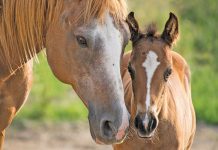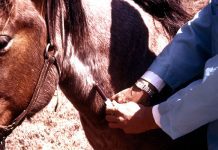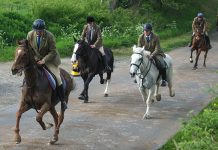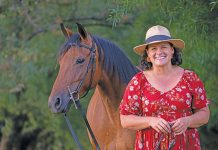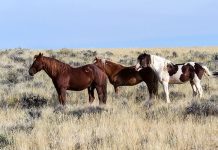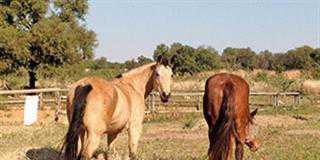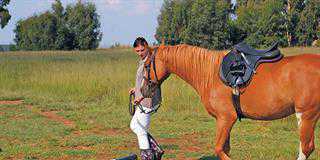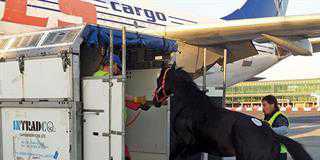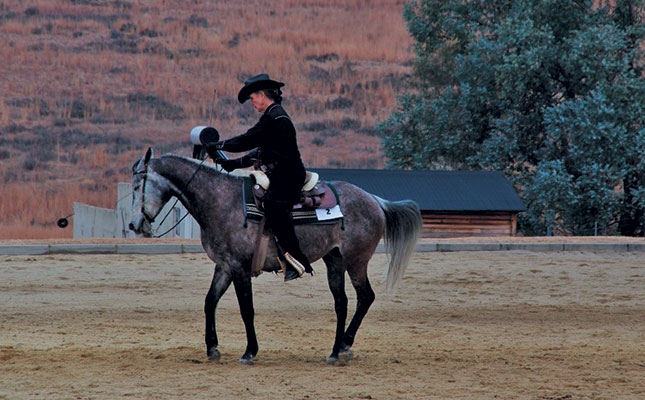
Horse shows place a great deal of stress on riders, owners and horses. Some horses work well at home, but begin to misbehave as soon as they are taken to a show.
If you’ve spent time, energy and money in getting your horse ready, you’ll know how frustrating it is to have the animal bolt, rear or buck in the show ring. No less problematic is the horse that weaves, crib-bites or rears and kicks at the walls.
To understand why this happens, we need to go back to the basics of horse behaviour.
Horses are herd animals, which means that all of them do the same thing at the same time, or the herd will disintegrate. Herd behaviour is reinforced at the home stables, where horses come in, go out and are fed at the same time.
Horse training involves habituation: getting a horse to behave in a certain way by building on previous training one step at a time.
At a show, however, both herd and schooling routines go out the window.
The stables and show arena are strange, the buddies are at home, yet the rider expects the horse to behave in the same way it did at home, without going through the steps of habituation.
Extra feed = extra energy
Another problem is that horses are kept in stables at shows and not allowed to go out into a paddock to exercise during the day as they would at home.
In addition, a show horse needs to be ‘fat’ as well as fit, so is often given extra rations to bring it into show condition. These are usually transformed into excess energy when the horse is ridden, making it excitable and hard to handle.
The solution
One way to make sure a horse is well settled at a show is to prepare well in advance: change its daily routine at home to the one you’ll be following at the show.
Feed at the same time in the morning, take the horse out to be lunged when it would normally go to the paddock, and ride it for the same length of time and at the same intervals you will be doing at the show.
It’s also worth taking the horse to the venue a few days before the show so that it can get used to the new environment.
Warm-ups are essential to make sure the horse is not too fresh when it goes into the ring. They also help to habituate the horse to its new surroundings.
Another thing that upsets horses at shows is the loud music and announcements. Some showjumpers attach their radios to loudspeakers in the practice arena at home, so that the horse learns to ignore the noise. You can also put in ear plugs.
If you’re feeling stressed, you horse may pick it up through the pitch of your voice and the rigidity of your body language.
If your horse starts to misbehave, relax your body and lower your voice. Also, drop to a slower pace. Riding steadily in circles often helps if you are in the warm-up area.
If the horse ‘blows up’ in the arena, get out of the way of other competitors. Move towards the centre and gently school the horse.
No shouting, whipping or spurring! Dismount or leave the arena only if the steward asks you to do so.
Dr Mac is an academic, a practising equine veterinarian and a stud owner.

